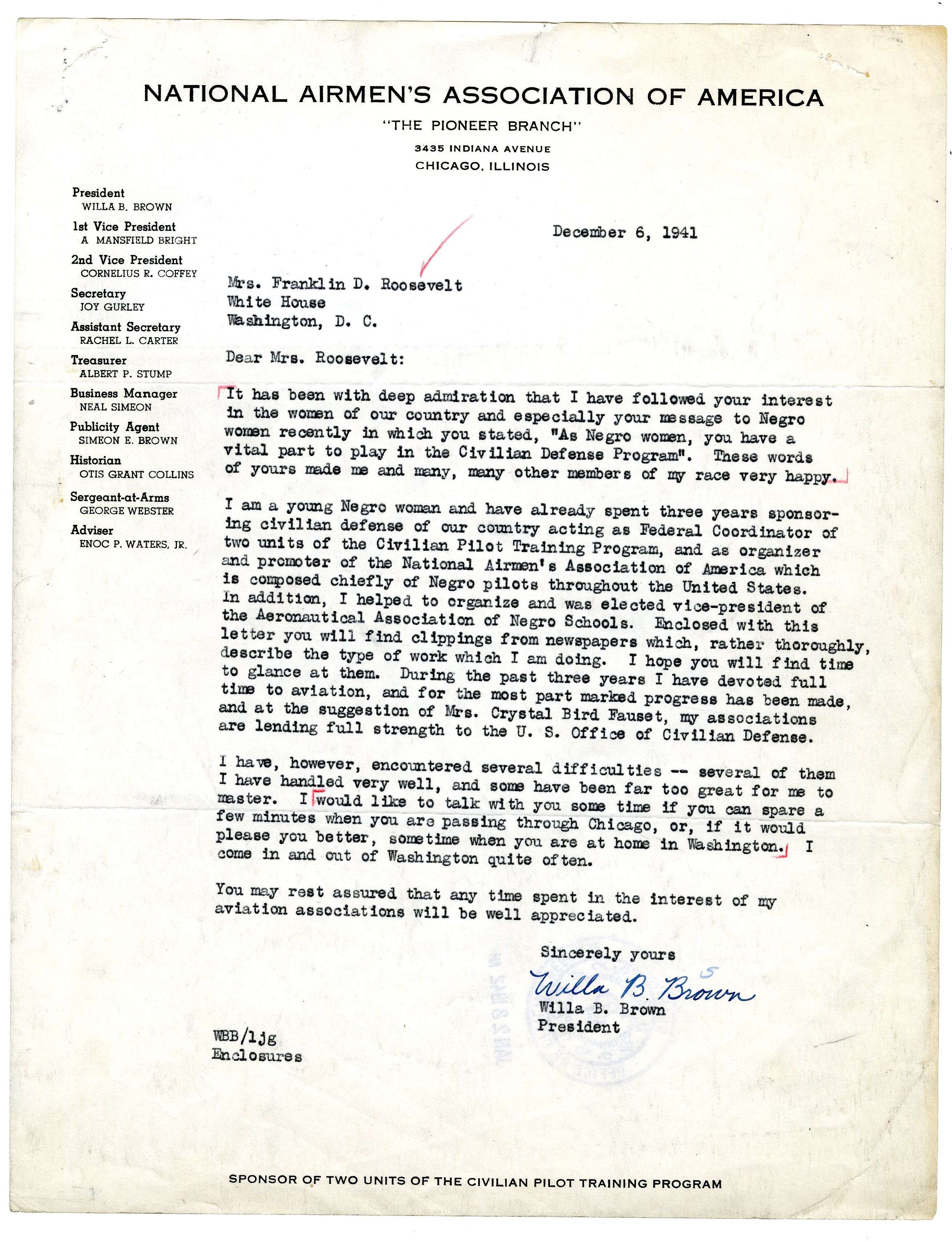Letter from Willa Beatrice Brown to Eleanor Roosevelt
12/6/1941
Add to Favorites:
Add all page(s) of this document to activity:

Pioneering aviator and civil rights activist Willa Beatrice Brown spent her life pushing boundaries. While working as a social worker in Chicago, Brown decided she wanted to learn to fly, at a time when opportunities for blacks were few and even fewer for black women. In 1938, she became the first black woman to earn a commercial pilot’s license. Brown and her husband opened a flight school, the National Airmen’s Association of America, dedicated to training black men to become pilots.
When World War II began, she worked to integrate aviation schools and was the first woman to be commissioned a lieutenant in the Civil Air Patrol, the civilian auxiliary of the U.S. Air Force. Credited with training more than 200 men and women, her school supplied trainees to the Tuskegee Airman program.
Brown sent this letter to First Lady Eleanor Roosevelt, sharing her contributions to the Civilian Defense Program and requesting to talk with Mrs. Roosevelt about difficulties she had encountered.
After World War II ended, Brown ran for Congress and, although not elected, she remained active in causes that were important to her, such as serving on the FAA Women’s Advisory Board until 1971.
This letter uses the term "negro" to refer to Black people, which was commonly accepted in that era, but is outdated and inappropriate today.
When World War II began, she worked to integrate aviation schools and was the first woman to be commissioned a lieutenant in the Civil Air Patrol, the civilian auxiliary of the U.S. Air Force. Credited with training more than 200 men and women, her school supplied trainees to the Tuskegee Airman program.
Brown sent this letter to First Lady Eleanor Roosevelt, sharing her contributions to the Civilian Defense Program and requesting to talk with Mrs. Roosevelt about difficulties she had encountered.
After World War II ended, Brown ran for Congress and, although not elected, she remained active in causes that were important to her, such as serving on the FAA Women’s Advisory Board until 1971.
This letter uses the term "negro" to refer to Black people, which was commonly accepted in that era, but is outdated and inappropriate today.
This primary source comes from the Records of the Office of Civilian Defense.
Full Citation: Letter from Willa Beatrice Brown to Eleanor Roosevelt; 12/6/1941; Negroes in Defense; General Correspondence, 5/1941 - 5/1942; Records of the Office of Civilian Defense, Record Group 171; National Archives at College Park, College Park, MD. [Online Version, https://www.docsteach.org/documents/document/brown-roosevelt, April 24, 2024]Rights: Public Domain, Free of Known Copyright Restrictions. Learn more on our privacy and legal page.



